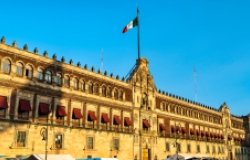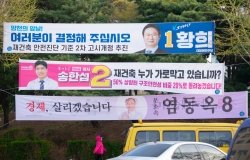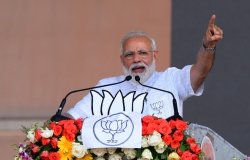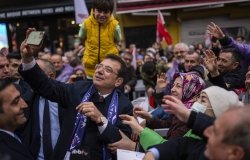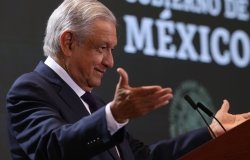Mykola Tys/Shutterstock.com
Local Elections and the Future of Local Self-Governance in Ukraine
Overview
Ukraine began to reform local government in 2015 as one of the demands of Euromaidan. Since then, the key achievement of decentralization policy was the empowerment of local communities through merging local districts. These new local governments broadened the scope of their agenda and budget as they merged. In July 2020, the Rada radically decreased the number of local administrations, or rayons, from 490 to 136. The October 2020 local elections brought new leadership into these administrations. Vita Dumanska, Olena Lennon, and Mykhailo Minakov discussed the results of the local elections, who now governs these reformed localities, and what the consequences of the elections might be on local reforms in the near future.
Selected Quotes
Mykhailo Minakov
"We are currently in a situation of combined political and constitutional crisis with certain unforeseeable consequences. So on the 25th of October, the local elections in all local and regional governments, old and new, were testing how prepared is the administrative territorial system. In a way, it was a stress test for the entire administrative territorial system created between 2015 and today. But also, these elections were testing the new electoral system based on new electoral code that was reformed a little bit last summer, so we didn't give up the rule that would change rules, electoral rules before the elections. We also were testing a new political regime that was established and that was based on the electoral success of a very popular personality. So will the Zelensky effect prevail in Ukrainian elections – that was also at stake."
"As the OSCE reported, they recognized elections as free and fair but with certain violations, and one of the biggest violations is connected to the presidential initiative of the so-called five questions. The very initiative was announced just a few weeks before the elections, it was a presidential initiative and the questions were really strange... Today, we cannot know how representative these answers were to all the five questions that the president asked the nation, but at the same time, as OSCE monitors mentioned, this can be regarded as a political trick to motivate supporters and promote the presidential party during the vote day."
Vita Dumanska
"The electoral court was adopted, developed and adopted by the previous parliament, but the current parliament adopted crucial changes one month before the start of the campaign and these changes were adopted [during] negotiations between Zelensky's party and the pro-Russian parliamentary party. In the efforts of conducting the election reforms simultaneously with the decentralization reforms, many legislative contradictions and gaps erupt. The rules of the game were changing during the election campaign even, not one month ahead, but we had these changes while the campaigning was in the process. So the election system and regulations remain unclear for both the candidates and political parties, as well as for voters."
"The gender quota was introduced at 40%. It's worth mentioning the compliance with the gender quota was only obligatory at the stage of candidate’s nomination but not at their official registration. Chestno observed the fact that one woman hadn't even agreed to run but was included in the party list. So we don't have the official results yet but we expect that more women will enter Ukrainian politics."
Olena Lennon
"The Servant of the People party, by suffering general defeat in local elections and being unable to win a single mayoral race or majority in any regional parliamentary or parliamentary city council, coupled with the constitutional crisis, deadlock in Donbas, and little program in the trilateral contact group, it's pretty clear that it's not just Zelensky's administration that's in trouble, but the efficacy of Zelensky as a brand or as a political project, if you will, has also been undermined and diminished. In fact, Zelesnky sees to be playing a game of whack-a-mole, quite literally, as there are multiple crises unraveling around him and time and again he has shown that his problem-solving instincts are reactive, authoritarian, and self-defeating, and his main opponents have also been revealed in the last local elections, Opposition for the Platform for Life, Poroshenko's party European Solidarity, and Yulia Tymoshenko's party, Fatherland, are exploiting his weaknesses to their own advantage."
"It's clear that Zelensky has not only lost the support of the people but also his sponsors because the usual suspects, the oligarchs, seem to be reinvesting into new brands and new faces and new political projects. I think that Zelensky made a mistake by declaring early on that he was only going to run, only going to stay one term, and that made him a lame duck prematurely because he rode the waves of popularity to get elected but it's clear that his business leaders and powerful oligarchs are investing in other political projects, not least in preparation for parliamentary elections. So to me, that last local elections in large part signified ways in which parliamentary elections are being mapped out and prepared, especially by looking at which parties the oligarchs and the usual suspects are likely to back."
Speakers
Hosted By

Kennan Institute
The Kennan Institute is the premier US center for advanced research on Russia and Eurasia and the oldest and largest regional program at the Woodrow Wilson International Center for Scholars. The Kennan Institute is committed to improving American understanding of Russia, Ukraine, Central Asia, the Caucasus, and the surrounding region though research and exchange. Read more
Thank you for your interest in this event. Please send any feedback or questions to our Events staff.





